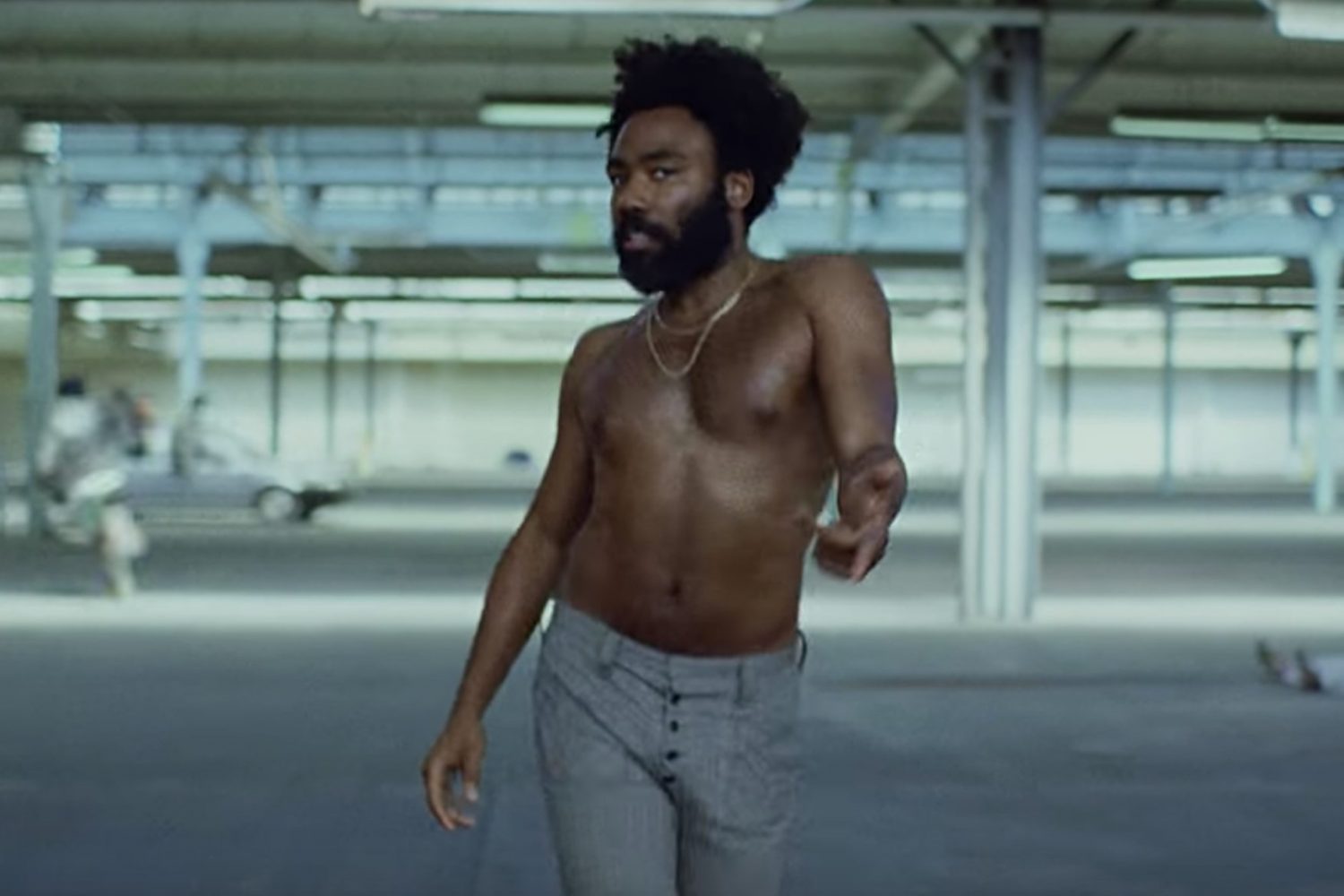Actor, director, DJ, comedian, writer, producer and singer-songwriter, Donald Glover’s impressive career and range made him both wildly successful and a popular figure in the entertainment world. Amidst a global pandemic, Glover released his latest album, “3.15.20,” as an uninterrupted stream on donaldgloverpresents.com. Today, the release can be streamed on more traditional services such as Spotify or iTunes.
The album calls on its listeners to question the systems we live by, down to the very way we receive and interpret information. Not only does the album speak strongly to its listeners, but the album is awe-inspiring on its own and cannot be ignored. “3.15.20″ is Glover’s greatest feat. But in order to discover what makes Glover’s evocation of the contemporary zeitgeist so great, I had to listen back over Glover’s music career thus far under his alias Childish Gambino.
The story goes that Glover’s brand, Childish Gambino, was adopted from an internet Wu-Tang Clan name generator. While the moniker was randomly generated, it fit the charismatic performer well. From Gambino’s first mixtape, “Sick Boi,” to his album debut, “Camp,” the name always reflected the true nature of his alter ego. His weird and captivating rapping style and his highly stylized and nerdy lyrics portrayed the childish part of Childish Gambino rather effectively. Glover adopted this young, spiteful persona on a path toward fame and fortune. “Camp” takes the punk and grudge-holding rapper and throws in jokes of him “not being a real rapper” back in its listeners’ faces.
The Gambino perspective throughout the album draws attention to a hard-to-like and complicated young man. The songs are depressing, provocative and can paint Gambino as self-obsessed. The “Camp” album fully embraces Gambino’s immature aesthetic; however, the songs themselves are such a mic-drop that the somewhat intolerable Childish Gambino identity can often be ignored for Glover’s impressive performance.
In his earlier songs, Childish Gambino always seems to be fighting with who this alter ego is. The ongoing battle for control between the two egos makes his music entertaining and surprising; I can never predict what a release will sound like — his songs are always diverse and experimental. Nonetheless, “Camp” is more of an attention seeker than a magnum opus and I could not help but wonder what a Glover album would sound like compared to a Gambino one.
Gambino suggests that he does not care whether the listener thinks they will understand the point of any of his lyrics and goes further by insinuating that he does not care if the listener ever understands. This is such an important moment for Gambino because Glover is giving his character room to create art apart from simply firing back at his haters. Childish Gambino produces authenticity over a consumer-oriented product. He wants to imagine something that stays true to Gambino whether it’s dense or not.
Glover further explores what he wants out of his childish persona with the release of his psychedelic funk and space opera, “Awaken My Love.” “Awaken My Love” showcases Gambino’s talent as not only a lyricist or a rapper but as an artist. The album steps away from Gambino’s rapper origins for a thrilling collection of embellished sound and operatic funk, which like all his albums, is an exciting piece full of memorable songs. The album, so distinctly different from his previous work, caught a lot of his fans off guard. While many enjoy “Awaken My Love,” it could seem like yet another sign of an identity crisis. Is this Gambino or is it Glover?
Matthew Strauss on Pitchfork wrote, “He has clearly absorbed a great deal of musical history, as the album nods to Parliament-Funkadelic, Sly and the Family Stone, Rick James, Prince, and more. There are times, however, when that nodding feels more like mimicry than anything else.” Perhaps the “line between Donnie G and Gambino” is so hard to find that Gambino has to substitute his conflicting egos for vocal and instrumental imitation. Before “3.15.20,” it seems that the Gambino persona may have felt like an anchor on his creativity. Maybe the only thing keeping Glover from becoming an authentic musician to himself is his alternate ego.
During a performance at 2017’s Governors Ball, Glover announced that he would retire the Gambino persona. Glover commented in an interview with the Huffington Post: “Being punk just always felt really good to me and we always looked at ‘Atlanta’ as a punk show and I feel like the direction I would go with Childish Gambino wouldn’t be punk anymore. As much as ‘Redbone’ is a punk song because it is a gospel song that’s on the radio, I’m like there’s only so far you can go before you just are the radio.”
Glover is looking for a change and Gambino does not seem like the right fit for where he is heading. What follows Gambino? In the Pitchfork review of “Awaken My Love,” Strauss might have correctly assumed the direction of Glover’s future music career. He wrote, “Maybe he’ll figure out how to smuggle Glover’s heart into Gambino’s brain eventually, but if he hasn’t figured out what he wants out of Gambino yet, it’s increasingly rewarding watching him try.”
While “3.15.20” is not the first release of Gambino’s since “Awaken My Love” — that belongs to the fire single “This Is America” dropped in early May 2018 — his latest release may retire the Gambino identity and serve as the music debut for Glover. In a time of social distancing, quarantine and a pandemic, donaldgloverpresents.com leaked it as an early uninterrupted stream. It had no title when it was released, and only two tracks, “Time” and “Algorithm,” had official names, while the other songs were simply identified by their timestamp.
An article from “The Guardian” said that the songs perfectly capture the sound of Glover’s musical breakthrough. Dean Van Nguyen described “3.15.20” as “the glorious payoff of this musical evolution.” He went on to write, “Melding elements of industrial hip-hop, hard-edged funk and pulsing electronica, with occasional experimental breakdowns a la Pink Floyd, it is an ambitious album that can turn from hedonism to hope on a dime. And with its genre-hopping ethos, bold orchestral choices, and pleasing tunefulness, it is the first truly boundary-pushing record of the 2020s, cementing its creator as a daring virtuoso.”
The album is at least partially credited to not only Gambino but Glover himself. After all, it was “Donald Glover presents …” not “Childish Gambino presents …” I have always listened to Glover’s music and always felt like Gambino’s albums registered with me on a personal level no matter what period of my life it was. The album “3.15.20” made me pay attention to the world around me and challenged the way I thought of it. Glover must have grown up with every new release. The way he addresses his children and family, either sub-textually or directly, shows the listener a more mature Glover.
This album celebrates Gambino’s accomplishments and embraces Glover’s new direction. The last song on the album, “53.49,” with its impressive mix of wacky old school Gambino rap and impressive vocals by a modern-day Donald Glover, is the perfect send-off for Gambino. A friend of mine described the song as Glover watching Gambino walk out the door for the last time. Looking back on Glover’s earlier forays allows me to understand how important this album is for myself as well as Glover, and for that, I urge others to give it a shot if they have not already. Childish Gambino will be missed, but Donald Glover’s debut could not have arrived at a better time.
















